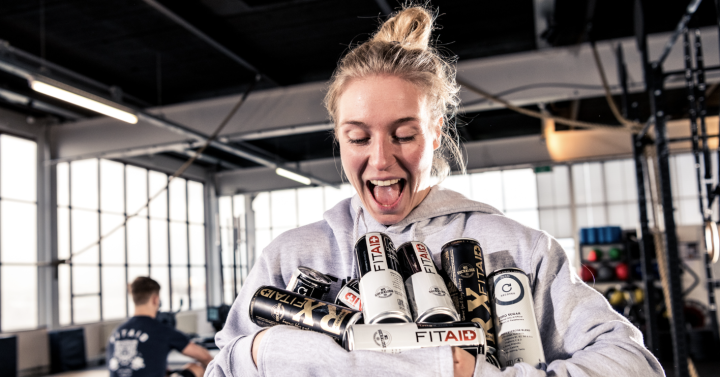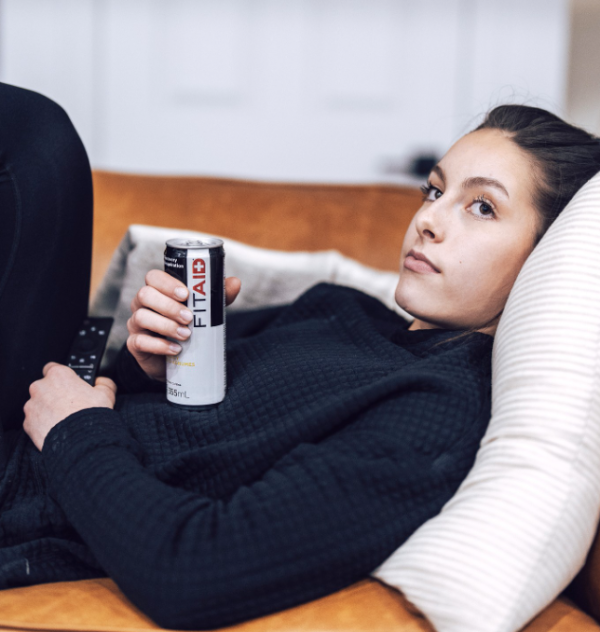Self Care is CRITICAL to your Fitness Goals
Yes, Self Care is Scientifically linked to your Fitness Goals.
Self-care is critical for supporting physical and mental health, reducing the risk of injury, and promoting sustainable habits that support fitness goals. By prioritizing self-care, individuals can better support their overall well-being and make it easier to achieve and maintain fitness goals over the long term.
If you take care of your mind, it will thank you back.
Self-care is an important aspect of maintaining physical, mental, and emotional health. It involves taking deliberate actions to care for oneself and prioritize one's own needs. There are many ways to express self-care, and some examples include:-
- Prioritizing sleep: Getting enough sleep is critical for maintaining good physical and mental health. Set a regular sleep schedule, create a calming sleep environment, and try to get 7-9 hours of sleep each night.
- Engaging in physical activity: Regular physical activity can boost mood, reduce stress, and improve overall health. Find a physical activity that you enjoy and that fits your lifestyle, whether it's going for a walk, practicing yoga, or lifting weights.
- Eating a healthy diet: Eating a balanced diet rich in fruits, vegetables, whole grains, and lean protein can provide essential nutrients and improve overall health. Avoid highly processed foods and aim to eat a variety of nutrient-dense foods.
- Taking time for relaxation: Relaxation can help reduce stress and promote a sense of calm. This might include practices such as meditation, deep breathing (including Wim Hoff breathing), or taking a warm bath.
- Spending time with loved ones: Spending time with friends and family can help foster a sense of connection and support. Make time for social activities that bring you joy and help you feel connected to others.
- Pursuing hobbies and interests: Engaging in activities that bring you pleasure and fulfillment can help reduce stress and improve mood. This might include activities such as reading, painting, or playing music.
- Seeking professional support: If you're struggling with physical or mental health issues, seeking professional support can be a key aspect of self-care. This might include talking to a therapist, consulting with a healthcare provider, or seeking support from a support group.

Self-care is critical for achieving and maintaining fitness goals for several reasons. Here are a few examples:
-
- Recovery: Rest and recovery are essential components of any fitness program. Without adequate rest and recovery time, the body can become fatigued and prone to injury. Self-care practices, such as getting enough sleep, practicingstress management, and engaging in gentle exercise or stretching, can help facilitate recovery and prevent burnout.
- Motivation: Self-care practices can help boost motivation and energy levels. When we feel good physically and mentally, we are more likely to have the motivation and energy to exercise and pursue our fitness goals.
- Injury prevention: Self-care practices, such as stretching and mobility exercises, can help reduce the risk of injury by improving flexibility and range of motion.
- Mental health: Physical activity can have positive effects on mental health, but it's important to also prioritize self-care practices that support mental health. Engaging in stress-management techniques, practicing self-compassion, and seeking support from a mental health professional when needed can help support overall well-being and make it easier to stay committed to fitness goals.
- Sustainable habits: Self-care practices can help support the development of sustainable habits that promote long-term fitness and health. By prioritizing self-care, individuals can learn to tune in to their own needs, manage stress, and find joy in physical activity, all of which can support long-term success.
 FITAID is a great drink for self care and post-workout routines. It contains no artificial sweeteners, such as sucralose or aspartame, and instead uses clean caffeine from green tea extract. The electrolytes and vitamins in FITAID, such as turmeric, magnesium, potassium, vitamin C, biotin, vitamin D3, quercetin, CoQ10, calcium, vitamin E, glucosamine, BCAAs, L-arginine, L-glutamine, green tea extract, and thiamin, help aid muscle recovery and support overall health and wellness.
Want to learn more?
FITAID is a great drink for self care and post-workout routines. It contains no artificial sweeteners, such as sucralose or aspartame, and instead uses clean caffeine from green tea extract. The electrolytes and vitamins in FITAID, such as turmeric, magnesium, potassium, vitamin C, biotin, vitamin D3, quercetin, CoQ10, calcium, vitamin E, glucosamine, BCAAs, L-arginine, L-glutamine, green tea extract, and thiamin, help aid muscle recovery and support overall health and wellness.
Want to learn more?
Here are a few scientific articles and resources on self-care:
-
- "Self-care for healthcare professionals: a review" by Kristin Neff and Chris Germer, published in the Journal of Clinical Psychology in Medical Settings. This article reviews the importance of self-care for healthcare professionals, including the challenges they face and strategies for promoting self-care.
- "The science of self-care" by Janice Kiecolt-Glaser, published in Perspectives on Psychological Science. This article reviews the science behind self-care and its effects on physical and mental health.
- "A randomized controlled trial of a self-guided, multimedia, stress management and resilience training program" by Lynn W. Panton and colleagues, published in the Journal of Occupational Health Psychology. This study examines the effectiveness of a self-guided stress management program on stress and resilience.
- "Self-care and burnout among nurses: a comparison of working in acute care hospital settings and community settings" by Emily Seto and colleagues, published in Health and Social Care in the Community. This study compares levels of self-care and burnout among nurses working in different healthcare settings.
- "The power of self-compassion" by Kristin Neff, a book that explores the science of self-compassion and its importance for physical and mental health.
- "The Mayo Clinic Guide to Stress-Free Living" by Amit Sood, a book that provides practical strategies for reducing stress and promoting self-care.
These resources provide scientific insights and practical strategies for promoting self-care and improving overall well-being.



